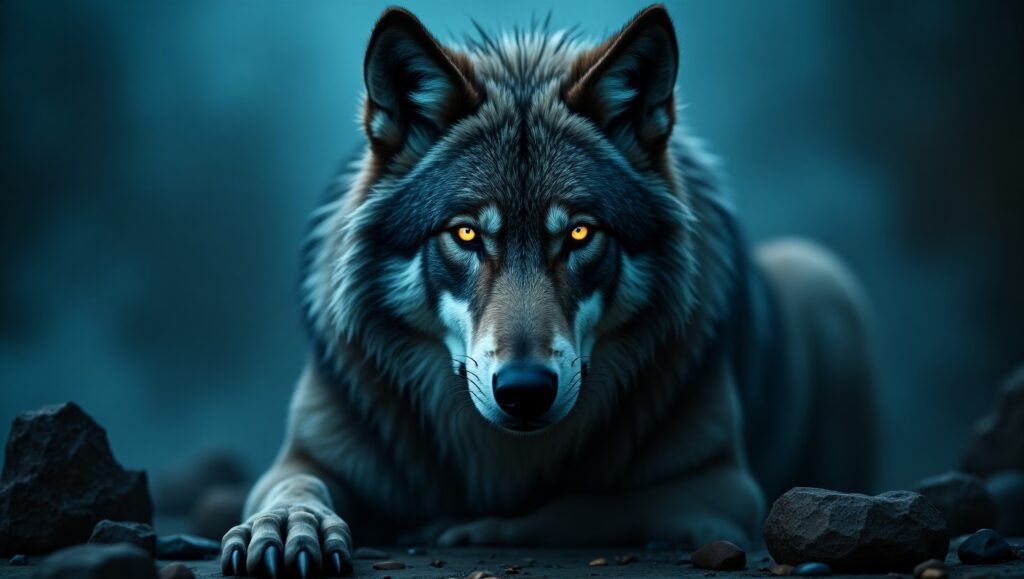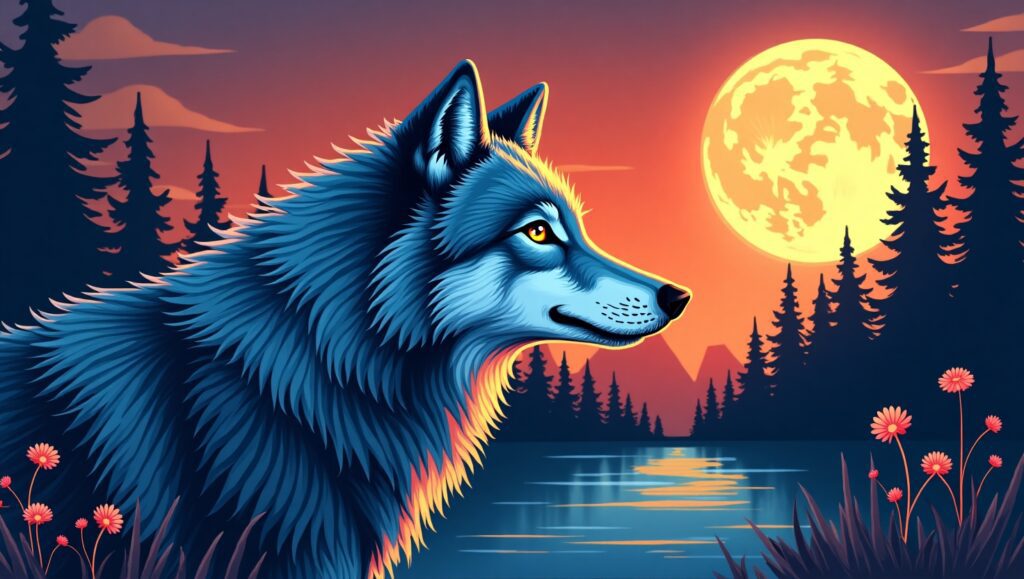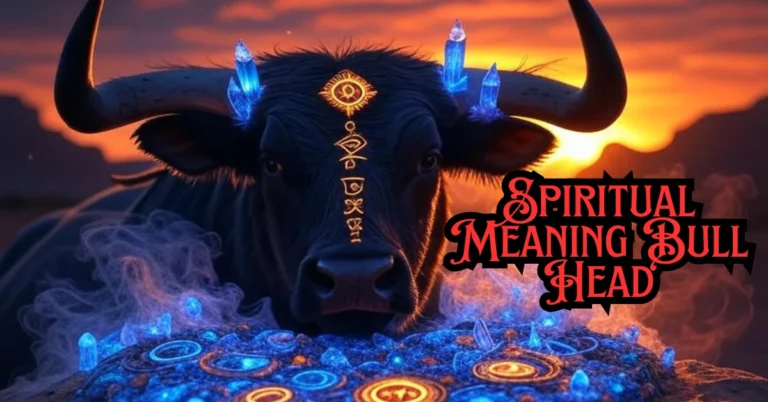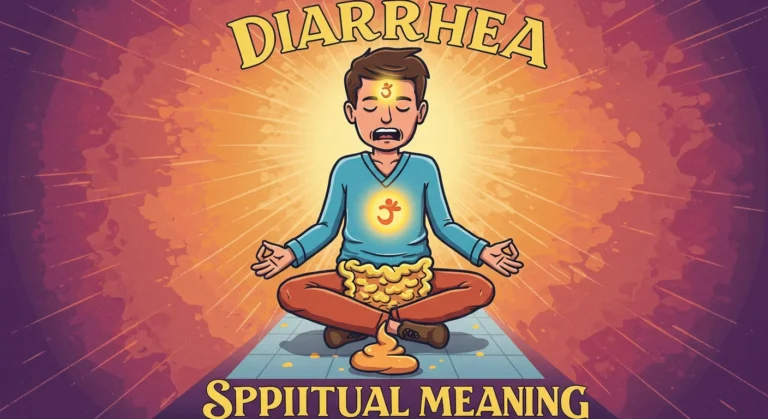Wolf Symbolism – Cultural and Spiritual Meanings!
Wolves inspire wonder with their dramatic presence. Wolf symbolism is global, speaking in ancient legend and contemporary fiction. Why do wolves have such a universal hold on the human mind?
Wolves symbolize strength in most cultures. They demonstrate collaboration by hunting in packs. However, the lone wolf symbol identifies individuality. The duality makes wolves compelling. For example, Native American nations idolize wolves as spiritual guides. On the other hand, wolves like Fenrir in Norse mythology symbolize chaos and power. These varied interpretations keep them popular.
Keep connected! Stay tuned with us to discover how wolves symbolize courage and deep cultural significance.
“The wolf is a symbol of the untamed spirit, fierce yet loyal, a reminder of our wild hearts.” — Unknown
Key Takeaways:
- Wolves symbolize strength, loyalty, freedom, and spirituality across global cultures.
- Mythologies like Norse and Native American traditions view wolves as guides or protectors.
- Wolves in literature often represent duality—both noble and dangerous.
- Modern culture embraces wolves as symbols of independence and resilience.
- Understanding wolf Significance enhances personal and cultural connections to nature.
Ancient Myths Reveal – Norse Mythology and the Wolf:
Wolves play pivotal roles in ancient myths. Their fierce yet loyal nature inspires diverse interpretations across cultures. From spiritual guides to chaotic forces, wolf significance reflects humanity’s complex relationship with nature.

Norse mythology paints wolves differently. The wolf Fenrir, a monstrous creature, represents destruction. Bound by gods, Fenrir’s eventual escape signals Ragnarök, the world’s end. Yet, wolves also hold positive roles. Odin’s wolves, Geri and Freki, embody loyalty and vigilance. They accompany the god, offering divine protection.
This contrast reflects the Norse view of wolves as both chaotic and noble. Their dual nature mirrors human struggles with control and freedom. Such complexity enriches the wolf’s significance in Viking culture.
“The wolf on the hill is not as hungry as the wolf in the valley.” — Norse Proverb
5 Powerful Spiritual Meanings of Wolves:
The wolf’s spiritual significance runs deep. Wolves inspire introspection and connection to the unseen. Their presence in spiritual practices highlights their role as guides and protectors. This section explores how wolves shape spiritual beliefs and personal growth.
1. Symbol of Community and Loyalty:
Wolves are well known for their intense pack nature, and they are characterized by loyalty and the need for community. Spiritually, wolves symbolize the need to connect, trust, and cooperate. That they can exist and survive in unity emphasizes the strength of collective work and support. Having a wolf present in your life may indicate you need to bond with family or community more and learn to rely on others, and build intense, loyal relationships.
2. Symbol of Intuition and Instinct:
Wolves have sharp instincts and acute senses, and as such, they are great symbols of intuition. Spiritually, they will prompt you to trust your instincts and heed your inner voice when in a tight spot. The wolf’s sense of danger or opportunity in a situation symbolizes the value in tapping into your subconscious mind. Seeing a wolf can be a call to depend on your intuition in times of uncertainty or to notice hidden clues in your surroundings.
3. Representation of Freedom and Independence:
Wolves are ferocious animals that roam big territories, with a spirit of freedom and autonomy. Spiritually, they represent chasing your true self and being brave enough to do it your way. A wolf’s wildness encourages you to free yourself from societal expectations or constricting thoughts, becoming the unique individual that you are. If you connect with a wolf, it could be asking you to take back your power and live life on your terms.
4. Guardian of Resilience and Strength:
Wolves are tenacious and robust, able to withstand challenging environments and overcome challenges. Spiritually, they symbolize inner strength, determination, and the power to survive adversity. The tenacity of the wolf inspires you to draw on your resilience, reminding you that you possess the ability to meet any challenge head-on. The energy of a wolf can manifest when you must stand your ground, defend your boundaries, or fight through adversity with boldness.
5. Messenger of Transformation and Spirituality:
Wolves are commonly viewed as guides along spiritual paths, representing transformation and a more profound union with the divine. Their howling at the full moon connects them to mystery, intuition, and the life cycles. Spiritually, a wolf can represent a time of personal transformation, inviting you to venture into your inner world or accept change. Seeing a wolf may mean that you’re on the verge of a spiritual awakening, asking you to tune into your higher purpose.
More For You: Animal Humidifier Crane – Elevate Your Home’s Comfort!
Wolves as Spirit Animals – Encourages You:
Wolves as spirit animals inspire self-discovery. They encourage people to trust their instincts. If a wolf appears in dreams or meditations, it may signal a need for independence. Wolves also urge balance between solitude and connection. Their pack dynamics teach the value of community.
Spiritually, wolves embody resilience. They thrive in harsh environments, showcasing adaptability. People drawn to wolf energy often seek freedom and authenticity. This connection fosters personal growth and inner strength.
The link between wolves and the moon is iconic. Their nocturnal howls create an ethereal bond with lunar cycles. Many cultures view wolves as lunar guardians. This association ties them to intuition, emotions, and the subconscious. For example, in astrology, wolves align with water signs like Pisces, embodying depth and sensitivity.
“The wolf’s howl is the voice of the wilderness, calling us to embrace our inner light.” — Spiritual Proverb
Wolf Significance Shines in Stories and Media:
Wolves enthrall audiences in fiction and film. Their duality—wild yet noble—makes them rich symbols in stories. From fairy tales to contemporary blockbusters, wolf imagery adds depth to storytelling.
Wolves in Classic Fiction:
Wolves in fiction are frequently symbolic of duality. In fairy stories such as Little Red Riding Hood, wolves symbolize danger and deceit. But in fiction such as Jack London’s White Fang, they symbolize resilience and redemption. This duality makes wolves interesting in fiction.
Writers employ wolves to probe human nature. They symbolize unbridled desires through their wildness and devotion through loyalty. In The Jungle Book, for example, wolves adopt Mowgli, exhibiting care-giving tendencies. Such themes enhance the wolf’s significance in literature.
Wolves in Contemporary Media:
Current media heightens the symbolism of the wolf. In Game of Thrones, the direwolves of the Stark family represent protection and loyalty. Their destiny mirrors the fate of the family and adds emotional resonance. Likewise, movies such as The Grey present wolves as symbols of mortality and survival.
Pop culture also accepts wolves as symbols of rebellion. Music groups and sports teams take on wolf images to symbolize strength and solidarity. Such a trend maintains the wolf’s essence in modern-day storytelling.
Spiritual Meaning of Wolves Across Cultures:
Wolves have diverse meanings in worldwide cultures. Different cultures attribute distinct roles to wolves that symbolize their values and environments. Wolves have played everything from spiritual guides to protective caregivers. This section delves into various societies’ perceptions of the wolf’s symbolism.

Native American Symbolism:
Native American societies have a reverence for wolves as spiritual guides and symbols of balance. Tribes such as the Lakota and Cherokee have identified wolves as teachers, leading souls through trials. Their pack nature emphasizes loyalty, a highly valued asset. Wolves are also associated with intuition, with many connected to the mystical influence of the moon.
In addition, wolves ensure ecological balance by regulating prey. Indigenous myths describe them as nature’s guardians. As an illustration, the Navajo consider wolves to be pathfinders, guiding warriors to wisdom. These characteristics—fidelity and intuition—render wolves sacred companions in Native American cultures.
Celtic Symbolism:
Celtic culture honors wolves as symbols of change and community. Warriors respected wolves for their fearlessness, considering them spiritual guardians of holy places. Wolves are also representatives of intuition, which leads humans through life’s confusion. Their presence in Celtic knotwork bonds them with the cycles of eternity.
Furthermore, the pack nature of wolves drove clans to appreciate harmony. This combination of courage and harmony makes the meaning of the wolf stand out. It captures a society that appreciates individual courage as well as collective might, grounded in mythical respect.
Japanese Wolves Symbolism:
Japanese tradition reveres wolves as protectors and symbols of fertility. The now-extinct Japanese wolf guarded fields by keeping pests away, promoting abundant harvests. Farmers worshipped wolves as sacred messengers, frequently venerated in Shinto shrines. Such a favorable perception is in contrast to Western attacks on wolves.
In addition, wolves symbolized fertility, and it was thought that they blessed fields with fertility. This description—protection and fertility—emphasizes Japan’s distinctive symbolism. They point towards a profound appreciation for wolves as auspicious powers within agriculture and religion.
Roman mythology:
The she-wolf that nursed Romulus and Remus personifies motherhood at the heart of Roman origins. Romans were in awe of wolves’ discipline, reflecting military values. This caregiving strength characterizes the wolf in Roman civilization.
“The wolf that raised Rome reminds us that even the wild can nurture greatness.” — Roman Saying
More For You: Mourning Dove Symbolism & Spiritual Significance!
How Wolves Symbolism Shapes Present-Day Culture?
Wolves are still powerful symbols today. Their depiction is felt in personal identity and cultural movements. The meaning of the wolf changes with present-day values, symbolizing freedom and strength.

Wolves as Symbols of Freedom:
Presently, wolves symbolize freedom. Their wild instincts are reminiscent of people who desire freedom. Wolves in tattoos also signify escaping from limitations. Such imagery is also popular among contemporary society that appreciates genuineness.
In addition, wolves evoke nature-based movements. Conservation efforts underscore their place in nature. Protecting wolves means people respect their place in nature’s balance.
Wolves in Personal Identity:
Wolves inform personal identity. Individuals take wolf-themed names or avatars to convey strength. In online worlds, such as gaming clans, wolf imagery is employed to represent unity. The phenomenon testifies to wolves’ steadfast use as symbols of resilience and communality.
Unveil the Power of Wolf Tattoo Meaning – Popular Wolf Tattoo Designs:
Wolf tattoos have a strong meaning. They appeal to individuals who are attracted to freedom and strength. Wolf tattoos, as a common method of self-expression, find profound personal meaning. The significance of wolf tattoo meaning in contemporary culture is discussed in this section.
Wolf tattoos tend to signify autonomy. A single wolf image symbolizes self-dependence and bravery. Most individuals wear this image to commemorate individual victories or yearning for liberty. Pack tattoos, on the other hand, emphasize loyalty and belonging. They symbolize family or close ties, reflecting wolves’ pack behavior. Spiritually, wolf tattoos relate to intuition. Individuals tattoo wolves to tap into inner guidance or strength during adversity.
Wolf tattoo art is diverse. Lone wolf tattoos, sometimes within moons, highlight isolation and power. Howling wolf tattoos symbolize intuition, associated with lunar forces. Pack tattoos depict wolves in groups, indicating harmony. Geometric or minimalist designs suit contemporary styles, coupling simplicity with profound meaning. Each piece holds the wolf’s essence, allowing wearers to depict distinctive stories.
Find Wolf Jewelry’s Spiritual Significance – Types of Wolf Jewelry and Their Symbolism:
It is used as an amulet for protection and wisdom. Worn near the heart, wolf jewelry infuses energy with strong meaning. This section explores how wolf jewelry inspires personal development.

Wolf pendants on necklaces tend to symbolize fierce independence or being devoted to loved ones. Most people wear them to represent the wolf’s indomitable spirit. Wolf-patterned rings or bracelets symbolize intuition, reminding people to follow their instincts. Spiritually, wolf jewelry relates to change, leading wearers through life.
Wolf jewelry exists in various shapes. Wolf howling pendants convey instinct and moon connections. Wolf head rings represent power and leadership, favored by those with bold identity. Wolf charm bracelets show community, a representation of pack devotion. Wolf silhouette earrings show discreet references to toughness. Every item is a wearable symbol of the wolf’s spirit, combining fashion with spiritual complexity.
More For You: What Does Sparrow Symbolism Teach Us About Life?
What Wolf Dreams Reveal About You?
Dream wolves hold deep meanings. They often represent inner feelings, intuitions, or life changes. Wolf dreams have numerous interpretations, depending on the context of each dream. This section discusses various wolf dream scenarios and their symbolic meanings, guiding you on how to interpret their spiritual significance.
A Lone Wolf in Your Dream:
Seeing an isolated wolf in a dream indicates autonomy. The image of an isolated wolf often comes up when you are yearning for independence. The isolated wolf represents independence, pushing you to follow your intuition. It can also represent the necessity to be alone to think about personal goals.
Alternatively, an isolated wolf can call attention to loneliness. If the dream is lonely, it may signify feelings of loneliness. Look at your relationships. Do you have a balance between solitude and society? This dream is calling for inner strength and self-awareness.
A Wolf Pack Surrounding You
Encountering a wolf pack in a dream represents community. The pack embodies loyalty and support, reflecting your social bonds. If the wolves are friendly, it suggests strong connections with family or friends. You feel secure in your circle.
But an aggressive pack can signify conflict. It may be a sign of tension in group relationships or fear of being judged. This situation encourages you to assess your contribution to harmony or conflict. Are you creating harmony or experiencing challenges? Balance and communication are called for by the dream.
A Wolf Howling at the Moon:
To hear a wolf cry out to the moon in a dream invokes intuition. That vivid image serves as a link to your subconscious mind. The howl represents a summons to heed the inner voice. It can prompt you to use your intuition regarding making a decision.
Additionally, the presence of the moon relates to emotional cycles. This dream typically occurs during times of transformation, such as career changes or self-growth. It invites taking on change boldly. Consider what’s changing in your life to reveal the message of the dream.
A Wolf Attacking or Chasing You:
Being attacked by a wolf or chased by one in your dream is intense. This is usually a sign of fear or unresolved conflict. The wolf can symbolize an inner conflict, such as self-doubt or pent-up anger. It urges you to face these feelings directly.
On another level, an attacking wolf might reflect outer pressures. Are you experiencing difficulties in the workplace or relationships? This dream indicates a need to assert yourself. By confronting fears, you regain personal power and resilience.
A Friendly or Protective Wolf:
Encountering a friendly or nurturing wolf while dreaming is comforting. The wolf is a spiritual guide that provides protection. It indicates you are being protected by your intuition or loved ones. The dream usually manifests when there are challenging situations, reminding you of inner strength.
Furthermore, a protective wolf embodies trust. It encourages leaning on your instincts or community for guidance. If you’re navigating uncertainty, this dream affirms you’re not alone. Embrace its energy to move forward with confidence.
“In the dream of the wolf pack, we find the strength of unity and the courage to stand together.” — Spiritual Saying
How to adopt wolf spirituality for personal development?
The meaning of the wolf provides real-life means to enhance life. Its strong and loyal themes compel productive actions. When you work with wolf energy, you access personal and spiritual development. This chapter teaches steps to live like a wolf every day.
Begin by considering wolf characteristics such as loyalty and independence. Writing about these attributes can uncover inner strengths. Meditation using wolf imagery also creates a spiritual connection.
Another method is through nature. Spending time at wolf sanctuaries or conservation education increases appreciation. Wolf-inspired accessories can be a reminder every day of the wolf’s nature. These activities bring wolf energy into reach.
Busting Myths – Some misconceptions obscure wolves symbolism:
Misconceptions usually cover the wolf’s significance. Stereotypes depict wolves as simply predators, losing their greater meaning. Dispelling these myths uncovers the wolf’s real nature.
Wolves are all perceived as ferocious predators by many. But their protective and caring aspects are just as important.
Another myth is that wolves always signify danger. They usually symbolize guidance and protection. Dispelling these myths widens understanding. Wolves are multifaceted symbols, not unidimensional. Understanding their full range deepens cultural and individual relationships.
“Beware of the wolf in sheep’s clothing, but honor the wolf that guards the flock.” — Biblical Reference (Adapted from Matthew 7:15)
Frequently Asked Questions (FAQs):
What Does the Wolf Symbolize Spiritually?
Wolves have deep spiritual meaning. They are the symbol for intuition and inner knowing. As spirit animals, wolves teach people to follow their instincts. They also symbolize tenacity, persevering in difficult environments. This is a sign of spiritual strength in adversity.
What Is the Metaphorical Meaning of the Wolf?
Metaphorically, wolves are dualistic. They symbolize freedom and loyalty. The independent wolf represents individuality and self-sufficiency. The pack symbolizes community and cooperation in contrast. This duality reflects human conflicts with individuality versus relationship.
What Do Wolves Symbolize Literally?
Wolves symbolize awe-inspiring predators literally. They are canine animals who live in packs and are renowned for their hunting skills. Wolves keep ecological balance intact by regulating prey populations. They have a social organization based on loyalty, where their family ties are strong.
Is a Wolf an Omen of Good?
Wolves might be good omens, under the right circumstances. In most cultures, they are omens of direction and safeguarding. For instance, Native Americans consider wolves spiritual companions, bestowing wisdom. A wolf in dreams or reality can mean strength or lucidity. Wolves such as Fenrir in Norse mythology are omens of chaos.
Is Wolf Symbolism of Love?
The wolf’s symbolism is usually linked with love, especially loyalty. Their pack nature reflects the strongest loyalty to family. They mate for life, reflecting commitment and trust. This positions them as symbols of lasting love across most cultures.
Conclusion:
Wolf spins a complex web of story through time and across cultures. Native American guides, Norse destroyers, wolves incarnate strength, loyalty, and freedom. Their presence in stories, film, dreams, and personal psyche attests to their versatility.
Understanding the wolf’s symbolism connects us to nature and ourselves. This journey asks readers to enter the wolf’s spirit—untamed, fierce, and deeply inspiring.







